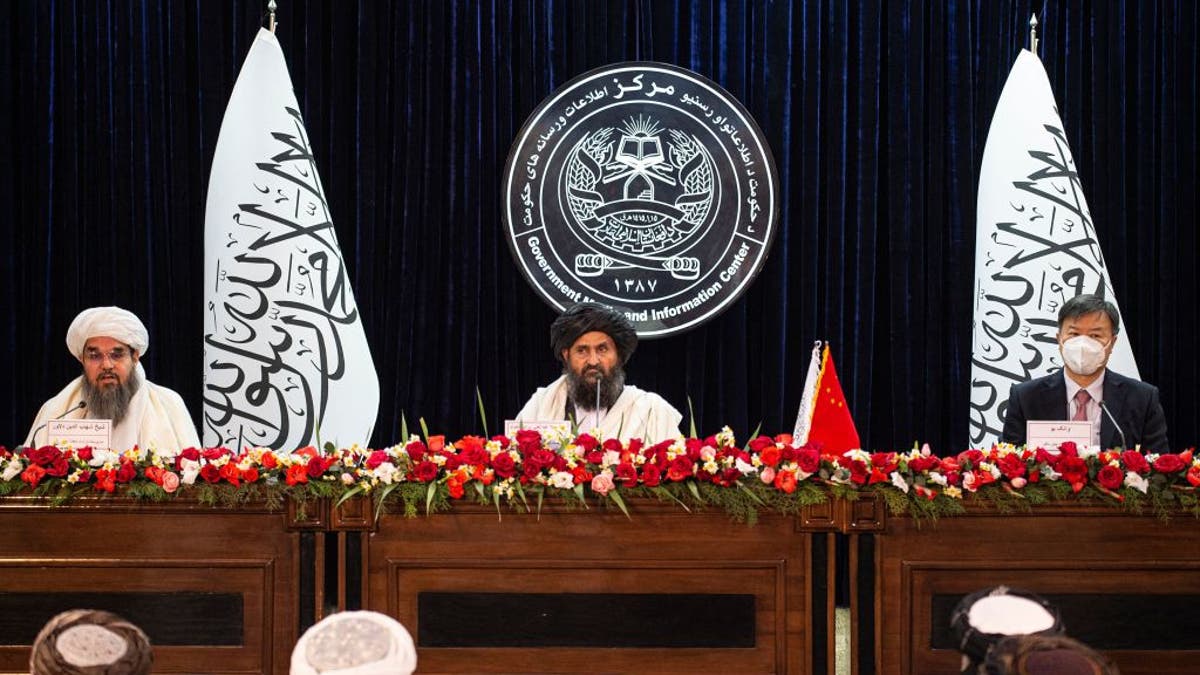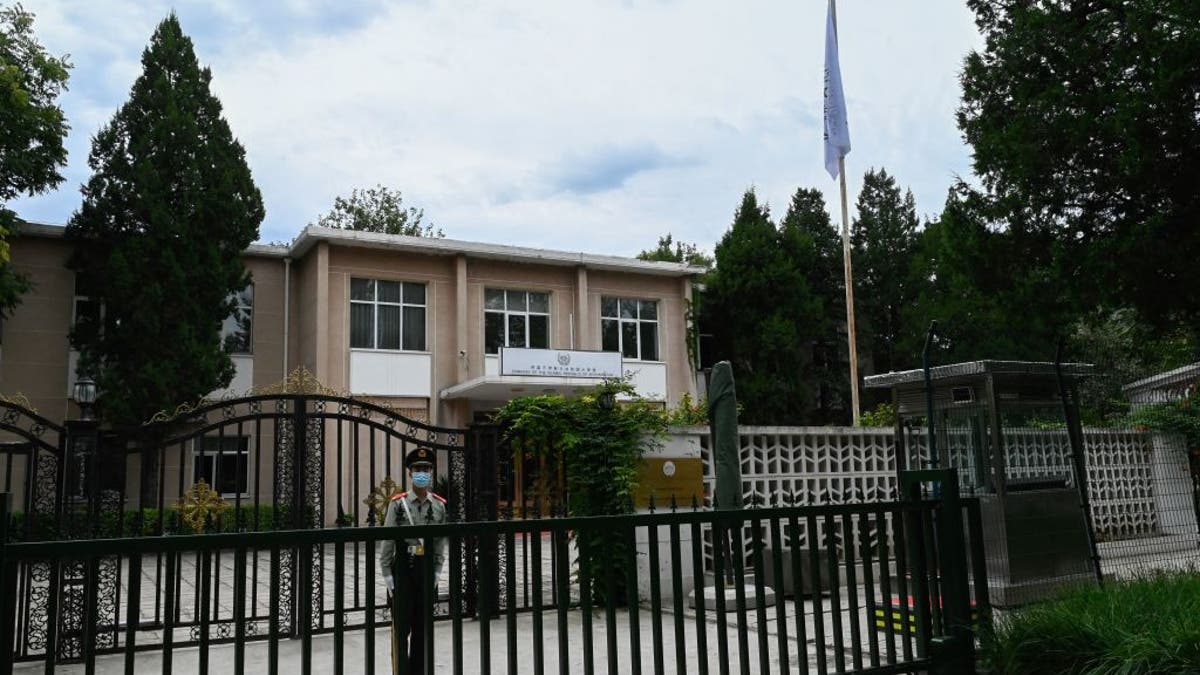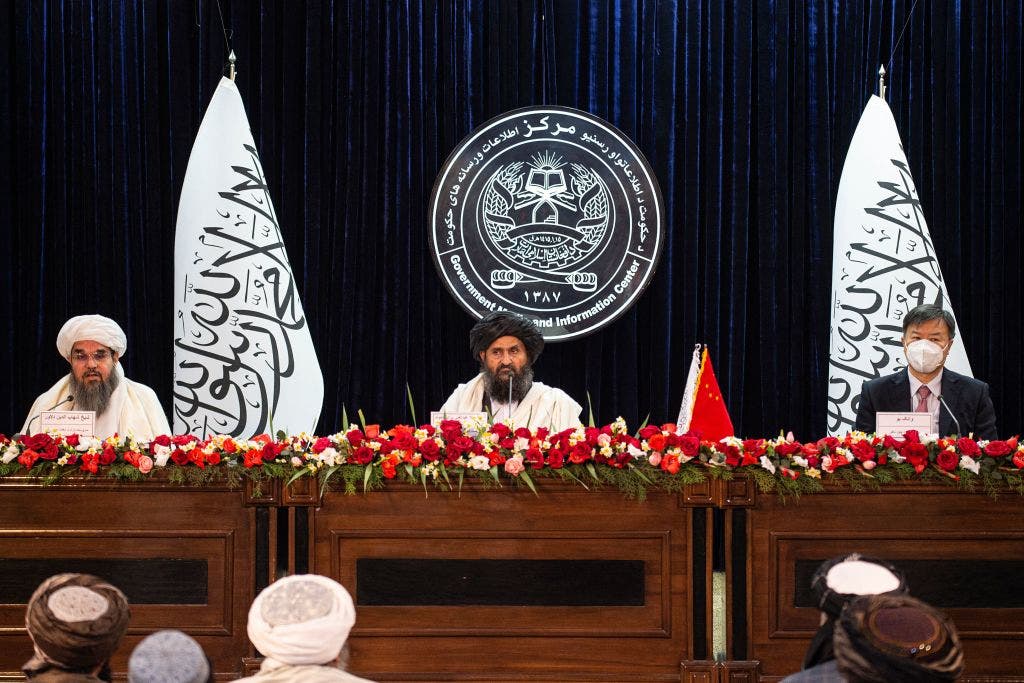Late last month, the Taliban ambassador to China, Bilal Karimi, presented his credentials to Chinese President Xi Jinping in Beijing’s Great Hall of the People, making China the first country to accept a Taliban ambassador.
It is a “normal diplomatic arrangement for China to receive the new ambassador,” Chinese Ministry of Foreign Affairs spokesperson Wang Wenbin told reporters. “China believes that Afghanistan should not be excluded from the international community. …. We believe that diplomatic recognition of the Afghan government will come naturally as the concerns of various parties are effectively addressed,” he said.
Bill Roggio, a senior fellow at the Foundation for Defense of Democracies, told Fox News Digital that he considers the relationship between China and the Taliban as “strictly transactional.” He said the groups are at an impasse because the Taliban cannot support China’s ongoing oppression of its Muslim Uyghur population and the Taliban host Uyghur militants from the al Qaeda-affiliated Turkistan Islamic Party (TIP) despite assuring China that the TIP will not be allowed to operate within Afghanistan
AFGHAN DIPLOMAT SHUNS TALIBAN RULE BY REFUSING TO LEAVE POST, CALLS ON WEST TO ‘MOBILIZE’ AGAINST ABUSES

Afghanistan’s acting minister of mines and petroleum, Shahabuddin Dilawar, left, Afghanistan’s acting first deputy prime minister, Abdul Ghani Baradar, center, and China’s ambassador to Afghanistan, Wang Yu, attend a press conference to announce an oil extraction contract with a Chinese company in Kabul on Jan. 5, 2023. (Ahmad Sahel Arman/AFP via Getty Images)
A Taliban spokesperson, the Chinese embassy and the Chinese Ministry of Foreign Affairs did not respond to Fox News Digital’s questions about the status of the countries’ relations or the Taliban’s myriad restrictions against Afghan women.
Jason Howk, director of Global Friends of Afghanistan, told Fox News Digital that China’s actions are a form of “soft recognition” used by several nations that “are legitimizing the Taliban and Haqqani terror regime without … fully recognizing the terrorists as a legitimate government.”

Workers sort crushed rocks containing chromite, a vital component of stainless steel, at the Mughulkhil mine in Logar province, Afghanistan, on Sept. 1, 2022. Foreign powers such as China, Russia and Iran are scrambling for a share. (Marcus Yam/Los Angeles Times/Getty Images)
Howk says “women and girls in Afghanistan are in the worst spot when it comes to … confer[ring] legitimacy on the terrorists.” Without censure from external actors, the Taliban and Haqqani Network are able to use “unlimited violence to shut down all opposition to their regime policies,” leaving women with “no recourse for reversing their misery in an open-air prison.”
CHINA MOVES IN ON AFGHANISTAN AS RELATIONSHIP WITH TALIBAN GROWS: ‘WE WELCOME CHINESE INVESTMENT’

Bilal Karimi is the Taliban’s new ambassador to China.
In response to press questions about the diplomatic development, State Department spokesperson Matthew Miller said he “would let the Chinese government speak to … their relationship and whether they have formally recognized the Taliban,” adding that the U.S. has informed Taliban leaders that “we will be looking to see them take a different course of action,” especially with regard to Taliban human rights violations against Afghan women and girls.

A Taliban fighter stands guard as people receive food rations distributed by a Saudi humanitarian aid group in Kabul, Afghanistan, on April 25, 2022. (AP Photo/Ebrahim Noroozi)
Fueling concerns about China’s recognition of the Taliban are increased business relations between Kabul and Beijing. In the last year, Afghanistan has attracted multiple hundred-million and multibillion-dollar investments from Chinese companies interested in its reserves of copper, cobalt, gold, iron and lithium that are valued at about $1 trillion. China also agreed in May 2023 to expand the China-Pakistan Economic Corridor, part of its controversial Belt and Road Initiative, to Afghanistan.
Some business ventures are already underway. After signing a $540 million deal with the Xinjiang Central Asia Petroleum and Gas Co. in January 2023, Sinopec of China increased Afghanistan’s crude oil production by 300% as of December. The Taliban spokesperson for the Ministry of Mines and Petroleum told Bloomberg that China has drilled about 10 wells in Afghanistan and produces about 5,000 barrels of oil per day.
UN ADDS AFGHAN CRISIS TO AGENDA AFTER TALIBAN BANS WOMEN, GIRLS FROM SCHOOL, PUBLIC SPACES, JOBS
Other projects have hit snags. Chinese investors who purchased the contract to mine Afghanistan’s Mes Aynak copper reserves more than a decade ago have not started work. The copper mine is situated amid the ruins of a 1,000- to 2,000-year-old city. Though open pit mining of Mes Aynak is the more economical option for exploiting its resources, doing so would disturb the area’s archeological ruins.

This view shows the Afghan embassy in Beijing on Sept. 19, 2023. (Pedro Pardo/AFP via Getty Images)
Another possible future link between China and the Taliban could spell trouble for the Taliban’s enemies. Reuters reported in September 2023 that the Taliban seek to create a “large-scale camera surveillance network” in Afghan cities, with Chinese company Huwaei providing a “verbal agreement” to support an installment contract.
Huawei products are banned in the U.S. and many Western countries. The Washington Post found that Huawei facial-recognition technology has been used to track China’s Uyghur population. Roggio says the Taliban “would use such technologies to advance its interests with China, including spying on problem elements of Uyghurs sheltering in Afghanistan.” The technology also poses a risk to a population of 3,000 Uyghurs who fled to Afghanistan to escape persecution in China, according to The China Project.
CLICK HERE TO GET THE FOX NEWS APP
For Afghans who already fear the biometric technology that Taliban members are said to be using at some of their checkpoints, the proposed surveillance network is likely to present new concerns.
Whether or not China officially recognizes the Taliban, its growing relationship with Afghanistan’s ruling party is “a bitter pill to swallow” for Mariam Solaimankhil, a parliamentarian from the former Afghan government. Solaimankhil told Fox News Digital that she feels the Chinese are “telling [Afghan women that] our struggles and pleas for freedom are worth less than political and economic gains. The message is loud and clear: Afghan women’s rights are up for sale, and the Chinese are all too ready to make a deal.”

